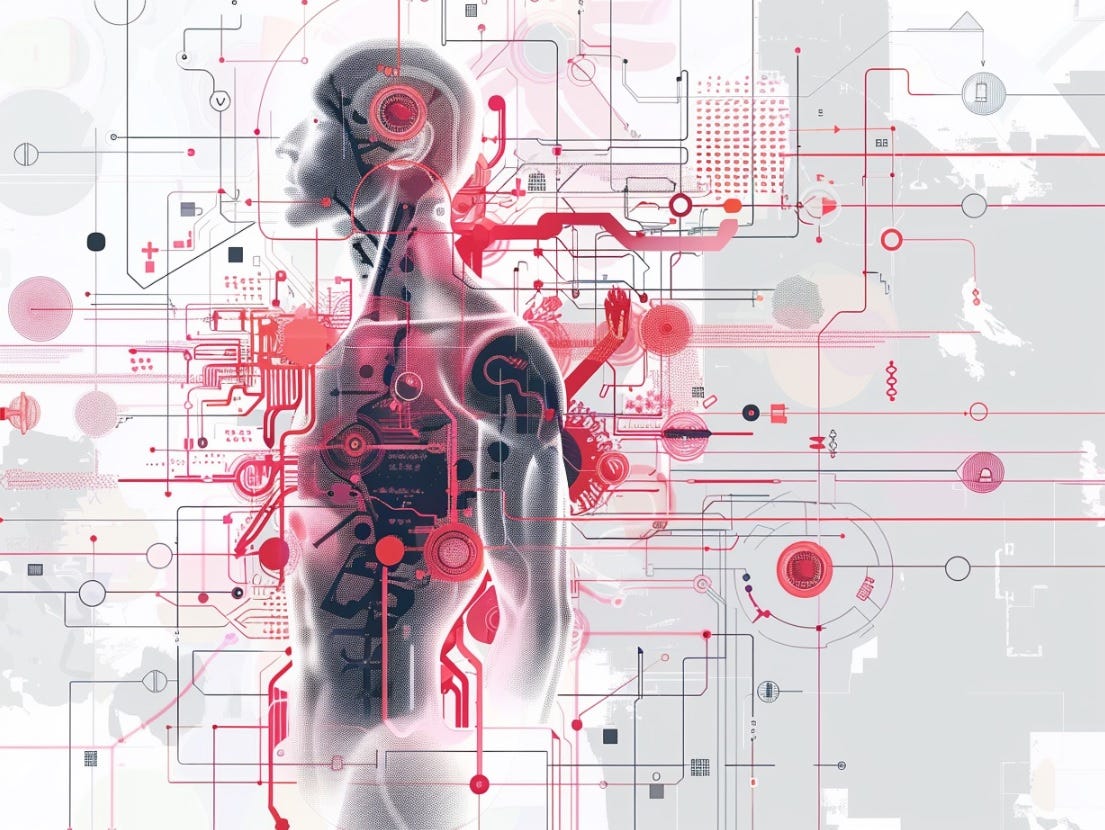💉💊🧬 From AI to Ozempic: How health innovation can strengthen the US economy
Also important: We'll live better and longer lives!
Quote of the Issue
“[GDP] is a measure designed for the twentieth-century economy of physical mass production, not for the modern economy of rapid innovation and intangible, increasingly digital, services.” - Diane Coyle, GDP: A Brief but Affectionate History
The Conservative Futurist: How To Create the Sci-Fi World We Were Promised
“With groundbreaking ideas and sharp analysis, Pethokoukis provides a detailed roadmap to a fantastic future filled with incredible progress and prosperity that is both optimistic and realistic.”
The Essay
💉💊🧬 From AI to Ozempic: How health innovation can strengthen the US economy
In a recent Quick Q&A chat with Danish economist Lars Christensen, he made the case for a productivity boom that went beyond enthusiasm for AI:
But the other thing is close to my home—it’s close to Denmark—it’s Ozempic, it’s Wegovy, it's the anti-obesity medicine that, of course, originates from Novo Nordisk. … When I'm looking at that from a Danish perspective, it's obvious this is a big deal for Denmark. It's like striking gold, or it's like Nokia was to Finland, but it might even be more important to the US. Forty percent of the US population is obese, and we know with obesity comes enormous economic burdens. Other than the healthcare burdens, there is an enormous burden on the economy. An average female obese woman earns around 10 percent less than a normal-weight woman in the States. Just taking that, imagine we cut obesity levels in the US to Scandinavian levels going from 40 percent of the population to 20 percent of the population. Assuming that that then increases salaries for those who will get out of obesity by 10 percent, that translates more or less into our two percent increase in US GDP. Again, as with AI, the effects of Ozempic are real-time.
As it happens, the bank Goldman Sachs just took a crack at calculating the economic impact of the new weight-loss drugs, as well that of other emerging health innovations such as AI-powered drug discovery, gene and cell therapy, and advances in diagnostics for diseases such as Alzheimer's.
GS economists write in a new report that these breakthroughs “imply a remarkable pace of healthcare innovation that could significantly improve health outcomes and enable people to live better and longer lives. While the primary goal of healthcare innovation remains raising care quality, these efforts could generate positive spillovers to the macroeconomy as well.”
Love the sound of that. So what might the macroeconomic effects be? For starters, a key piece of context needs to be understood: Health has big economic implications. As the GS economics team explains, poor health imposes economic costs through multiple channels:
First, it lowers labor force participation by two to three percentage points, as people in poor health are less likely to work.
Second, health issues increase absenteeism and reduce hours worked by around two percent a year.
Third, early death from disease subtracts 0.2 percentage points per year from potential labor force growth.
Finally, caregiving responsibilities for sick relatives reduces total labor supply by three percent.
GS puts it all together:
Keep reading with a 7-day free trial
Subscribe to Faster, Please! to keep reading this post and get 7 days of free access to the full post archives.



